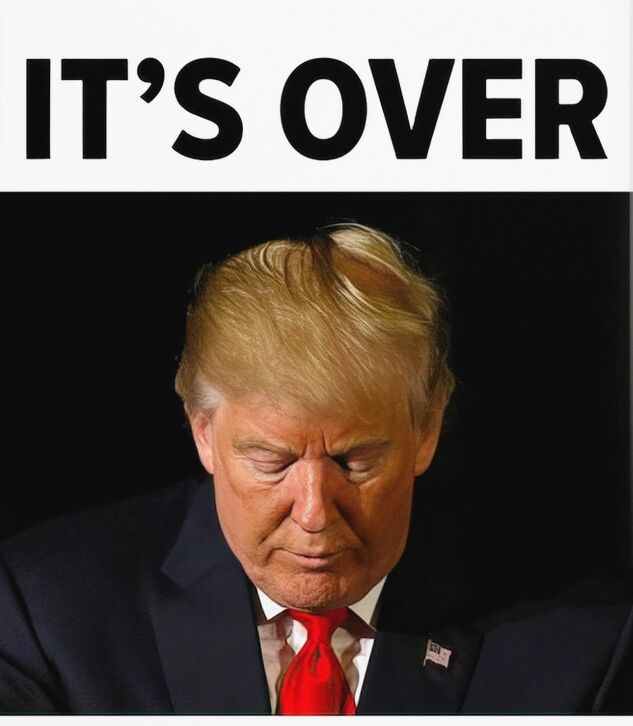Podcast: Play in new window | Download
Subscribe: RSS
Part 2. The Rules of the Game

It’s over soon not because of the criminal charges, the hideous behavior, the fascism or the increasingly lunatic speeches. It’s over because of the numbers he doesn’t understand.
Now that we have a clear view of the playing field, aka the electorate, it is pretty obvious what you have to do to win an election:
- notify the members of your party (about one-third of the electorate) that you are running and why. Although they will be predisposed to support you, you need to give them a reason to be enthusiastic about your prospects, as they will be the source of most of your votes, volunteers and money;
- then reach out to Independents (another third of the registered voters), especially but not exclusively the ones that “lean” toward your party, and provide them with reasons to support you;
- avoid members of the other party — any time spent arguing with them is wasted;
- if and when possible without compromising the essential tasks just described, conduct voter-registration drives to bring in possible supporters from the 25% of adults who are not registered;
- phase your outreach and expenditures so that your campaign is at its most intense in the final weeks. This is because the great majority of people get interested in an election only when it is imminent. Trying to reach them before they are interested is like talking in an empty room.
Everything a campaign does has a single purpose: to attract new people to the cause and motivate them to give their votes, time and money. For an elected official, this work must be continuous, because all organizations suffer attrition as people lose interest, move away, get married, have babies, change jobs, whatever.
Here’s the thing about Candidate Trump; during the leadup to his loss in 2020, and during all the time since, he has not done a single thing to attract new people (despite the fact that in 2016 he lost the popular vote). He is a one-trick pony, all he knows to do is fire up his base. With the passage of time he has had to take more and more extreme positions to excite his extreme followers, and now almost all of his positions are repugnant to moderate Republicans and Independents. As a result his base has been shrinking, the attendance at his rallies has been shrinking. And beginning in the spring, his own supporters began walking out of his rallies in large numbers while he was still speaking.
Trump’s approval rating as measured by Gallup was 45% when he took office and dropped to 34% when he left office. Freed of the responsibilities of the presidency, his approval rating has rebounded to 42%, but 53% of Americans disapprove of him (according to 538.com). This is not a launch pad to the presidency, it is a Slough of Despond.
Every campaign requires organization; a national campaign requires a huge one. Donald Trump has never run a large organization — his own firm is a small family business in which he almost never delegates responsibility. When Trump was first elected, Chris Christie was his personnel director and began assembling thousands of resumes and matching them to the thousands of jobs to be filled by the new president. When Trump saw what he was doing he fired Christie and threw away the paperwork; he would make all the decisions, based on his infallible judgment. Hilarity ensued.
Characteristically, there is today no national organization supporting the Trump campaign. The Biden campaign has 500 field offices staffed, up and running across the country, the Trump campaign has none. Zero. There was a nominal support group functioning nationally — the Republican National Committee — until Trump became the presumptive nominee, put his daughter-in-law in charge, and dismantled the entire operation. It will be many years before the Republican Party can function effectively as a national party and not a cult.
There is yet another way in which the numbers are working overwhelmingly against Trump. We’ll explore that next in Part Three: The Third Decision.
He never won the popular vote. But will he win the coup?
People compare him to Hitler, who also never won the popular vote (for president, or chancellor) but did win the coup. But Hitler was operating in a parliamentary system involving many parties, in which even after losing the election for supreme leader Hitler was able to put together a coalition of parties capable of giving him the prize. Not possible in our system.
Hitler was both smarter and more knowledgeable than Trump; he was logistically competent and was able to delegate responsibilities. Trump may admire Hitler and wish to emulate him, but he lacks the skills. Thank God he’s only Trump.
Yes. “It is well that evil is so stupid.” — Richard Bach
Not carping, just pointing out an anomaly.
Part 2, end of second last paragraph, the sentence begins, “Experience top-tier gaming”.
Spam. Got it.